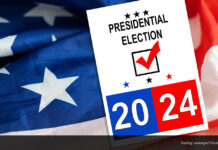As we get closer to the US election, many traders are asking what is going to happen after the election in the markets. Answering this question is tricky because changes in different markets depend on many factors and sometimes the winning party’s actions can be significantly different prior and post elections. A clear example of this is the US government specifying new tariffs for imports from different countries despite the Republican party, in particular, believing in a free-market economy.
To understand what is going to happen in the financial markets after the election, let’s take a brief look at the main ideas of the two parties.
In the Democratic party, where they believe that lowering income inequality will boost the economy in general, the American dream is the right to an education, a good job, fair housing, and social health care. The Democrats’ economic theory is mostly focused on small and middle-size businesses, with higher taxes for large businesses and higher income earners. On the other hand, since the party cares more about consumer rights, many say it is less friendly for the economy and creative entrepreneurial ideas.
In the Republican party they believe that lowering the cost of business, trade, and investments, especially in the stock markets, is the best way to boost the economy. While the Democrats would increase taxes, Republicans believe that lower taxes would support companies to hire more workers, the exact same policy which says that instead of government healthcare, it is better to decrease the costs for health companies, which will lead to cheaper health care that everyone will be able to use. The American dream to the Republicans is prosperity without government involvement.
Unlike other countries, in the US, the President has limited power in internal policy matters, while in foreign policy he (the USA has never had a female leader) is one of the main decision makers. Whatever plan he makes for internal policies has to be passed and confirmed by the House and Senate. In the first two years of President Trump’s administration, Republicans had control of both, while in the last election they gave up the House, (Democrats controlling the House and Republicans the Senate). The US Senate has 100 seats, currently held by 53 Republicans, 47 Democrats and 2 Independents. There are 35 seats up in 2020 – of which 23 are held by the GOP. The Democrats will need to gain 3 or 4 seats to take control. All 435 seats in the United States House of Representatives are being contested, with the Democrats currently in control of approximately 232 of the 435 seats.
What could happen if the Democrats win in November?
Joe Biden is known to be an influential person, so in his administration secretaries will play a much more important role than him, including Vice-President Camila Harris. In his first year he would be busy reinstating some of the international agreements which President Trump has lifted, like the Paris Agreement and the Iran deal in foreign policy.
For internal policy, he would probably create more restricted coronavirus plans and try to pass another bill to help unemployed workers or at least have their back with more insurance. Investment in Oil and Coal industries would be of less interest, even though they are two of the biggest job creator sectors.
Stock markets would be less attractive, and investors would more likely go after creating some other small or middle size local business than investing in stock markets, which means creation of a few more jobs. On the tax front, since the White House would be more interested in higher taxes for bigger companies, it would mean less income for them and clearly less income for investors as well, so even in stock markets, the focus, especially for retail investors, could be turned to middle range and green companies, with Silicon-Valley based companies getting more attention.
On the trade war front, as it concerns national security and supporting the American workers, the new administration would likely keep almost the same position, because Americans clearly believe that China is not playing fair by manipulating its currency, while copyright of technology is not being taken as seriously as it should be. The only difference would be in the tone of statements, while the approach would remain more or less the same.
What could happen if Trump remains in power?
Even if we do not see a change in the White House, we have to remember that the Democrats still have control of the House, (and are likely to retain that control) so while the same policy which we saw in the past 3 and half years is expected, the Republicans would try to win the next election of the House (2022) and hold the majority of the Senate.
Stock markets again would be excited, with investors focusing on large companies, and more tax cuts would be in the plan. Since this administration is looking for cheaper USD, President Trump may look again to replace the FED Chair with someone who more closely shares his economic ideology. Maybe someone who can support zero or even negative interest rates. The Oil industry in particular, that used to be so active in past years, would try to get back to its pre-Covid levels, despite the growing environmental lobby. On the trade war front, much stricter plans with China would be focused on as well as new tensions with western European countries.
Summary
In any case, no matter which party wins the election, not many changes are expected to internal policy in the first year. First, since the country is experiencing one of its worst financial crises, FED policy will be more important and we do not expect to see any significant changes, as the latest FOMC meeting made clear. On the other hand, as discussed in this article, if the House and Senate are controlled by different parties, passing any new bill that makes a huge difference is less likely to happen, as we saw with the latest stimulus package. So, the race for the Senate could be just as important for both parties as the race for the Presidency itself.
Click here to access the Economic Calendar
Ahura Chalki
Regional Market Analyst
Disclaimer: This material is provided as a general marketing communication for information purposes only and does not constitute an independent investment research. Nothing in this communication contains, or should be considered as containing, an investment advice or an investment recommendation or a solicitation for the purpose of buying or selling of any financial instrument. All information provided is gathered from reputable sources and any information containing an indication of past performance is not a guarantee or reliable indicator of future performance. Users acknowledge that any investment in Leveraged Products is characterized by a certain degree of uncertainty and that any investment of this nature involves a high level of risk for which the users are solely responsible and liable. We assume no liability for any loss arising from any investment made based on the information provided in this communication. This communication must not be reproduced or further distributed without our prior written permission.


















